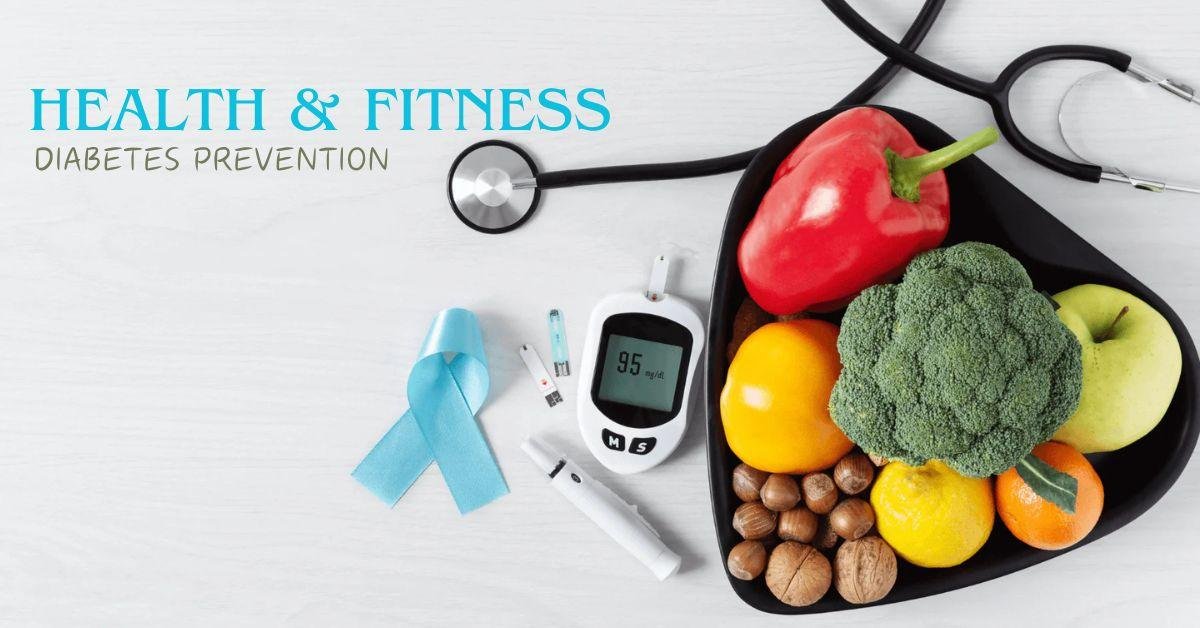What is Diabetes?
Diabetes is one of the most common chronic diseases that plagues humanity today, and new cases of patients are reported annually. For patients with Diabetes, which can be controlled by drugs and modification of behavior, prevention is always preferred to cure. The good news is that several simple strategies can effectively help to reduce the likelihood of developing diabetes, including type 2 Diabetes.
Below are all the guidelines for preventing diabetes, the correct diet, the manners you should avoid, and the things you should take.
Understanding Diabetes
Diabetes is a disease that has an impact on the way your body regulates blood sugar (glucose). The two main types are:
Type 1 Diabetes: A Type of diabetes where the body does not produce insulin. It commonly affects children and young adults, and oftentimes, the condition cannot be prevented.
Type 2 Diabetes: A chronic illness that affects the way the body processes blood sugar, as the body does not use insulin properly or does not produce enough. Cerebral palsy is, in many cases, a preventable condition brought about by changes in lifestyle and some practices.
The condition can arise where individuals fail to control their predisposing factors that include genetics, age, and also distinguished lifestyle factors. But the good news is that when people adopt a healthy lifestyle, they don’t get T2DM, and if they do, they are not severe.
Maintain a Healthy Weight
Obesity is again considered as one of the key causes of type 2 Diabetes in one or the other. Consuming more than the required calories, especially around the belly, can make you resistant to insulin. This means that your cells cannot readily absorb glucose from the blood, and as such, there are increased blood sugar levels.
Prevention Tip: Keep to a balanced diet and ensure you exercise frequently to maintain a good weight of body weight. Losing only 5-10 % of your total body weight will go a long way in helping you avoid diabetes.

Follow a Balanced Diet
Diabetes prevention involves the management of your diet plan. A healthy food plan is vital in controlling blood sugar levels; therefore, individuals are advised to consume different foods.
Prevention Tips:
Focus on whole foods: Add lower calories and less of dessert, sugar-sweetened beverages, and refined grains. These foods contain high fiber, which is essential for stabilizing blood sugar.
Limit refined carbs and sugary foods: High glycemic foods include foods that contain refined sugars and carbohydrates like candies, soft drinks, and white bread. It is better to consume complex carbohydrates such as whole grain carbohydrates.
Eat fiber-rich foods: Fiber reduces how fast sugar is absorbed into the bloodstream, keeping the blood sugar level balanced. There are all types of good fiber foods, such as beans, lentils, vegetables, oats, and even ground nuts.
Get Regular Exercise
The human body uses insulin better in the case of physical activity, and as a result, the levels of blood sugar may decrease. Exercise also leads to weight reduction and speaks to cardiovascular health, which are very vital in the prevention of diabetes.
Prevention Tips:
Ideally, you should have at least 150 minutes of moderate-intensity aerobic exercise per week, or 75 minutes of vigorous-intensity exercise per week, which may include brisk walking, cycling, swimming, or running, or sports.
Fish for strength training exercises at least two or more days a week. Muscle mass assists the body in the utilization of insulin better.
General advice is to avoid elevators, take a few flights of stairs instead, or, better still, walk around after meals where possible.
Try to keep track of your blood sugar levels.
For people at risk of type 2 Diabetes, the blood sugar tests can make it possible to diagnose the condition at an early stage of pre Diabetes. It is particularly helpful to people with a diabetic history in the family or those with other predisposing factors to the disease.

Prevention Tip:
If you fall under a high-risk group for diabetes, you should talk to your doctor about a blood glucose test. Some means can reduce or eliminate the risk of developing Diabetes and help avoid complications in advance.
Manage Stress Effectively
Stress can cause diabetes as chronic stress results in high cortisol, causing a high blood sugar level and insulin resistance. The ability to handle stress is very important for life and preventing diabetes and other related diseases.
Prevention Tips:
Recommend deep breathing, yoga, or meditation as stress-busting methods for effective reduction of stress.
Get enough sleep: Sleep is considered when one aims to have about 7-9 hours of sleep every day. Sleep deprivation is bad for your body; it weakens your ability to stabilize blood sugar and predisposes you to Diabetes.
Engage in enjoyable activities: Hobbies or other activities that make a person happy, can also decrease stress.
Stay Hydrated
Staying hydrated is important for overall health and might play an important role in Diabetes prevention. Water alone assists the kidneys in ensuring that they expel extra sugar through urine, as well as plays a vital role in the metabolic process.
Prevention Tip:
Everyone should try to drink no less than 8 cups (64 ounces) of water per day. Do not take beverages with added sugars, such as soda, or fruit juices, because they will increase your chances of getting Diabetes.
Quit Smoking
In particular, smoking causes insulin resistance and provokes inflammatory processes in the body, which in turn leads to the development of type 2 Diabetes. Smokers are also likely to be overweight.t The overwhelming majority of diabetics are either overweight or obese.
Prevention Tip:
Smoking is another risk factor, and one of the most effective things you can do to reduce your risk of getting diabetes is by smoking. Get counseling, take medicine, or join support groups to help to quit smoking.
Other general wellness exams and tests
Screening tests often reveal early symptoms of diabetes or prediabetes as part of a routine health examination. If you have risk factors like a family history of diabetes, or if you are overweight, your doctor may suggest getting tested for Diabetes or prediabetes.
Prevention Tip:
Make sure you have your annual exams and maintain consistency with your prescribing physician regarding what you need in terms of screenings based on your risk factors for diabetic illnesses.
Conclusion
Yeah, Diabetes prevention is all about powering your way to good health, according to the type of food you take. If you can stick to a healthy diet, exercise regularly, maintain a healthy body weight, learn to deal with stress, and have wondered how often you should go see a doctor, then the chances of you getting type 2 diabetes will be drastically reduced. These changes are not only effective in preventing diabetes, but also contribute to leading a healthy and happy life.
Do not neglect your health today by taking the first step towards a healthier life, and also remember that a little consistent effort goes a long way.






